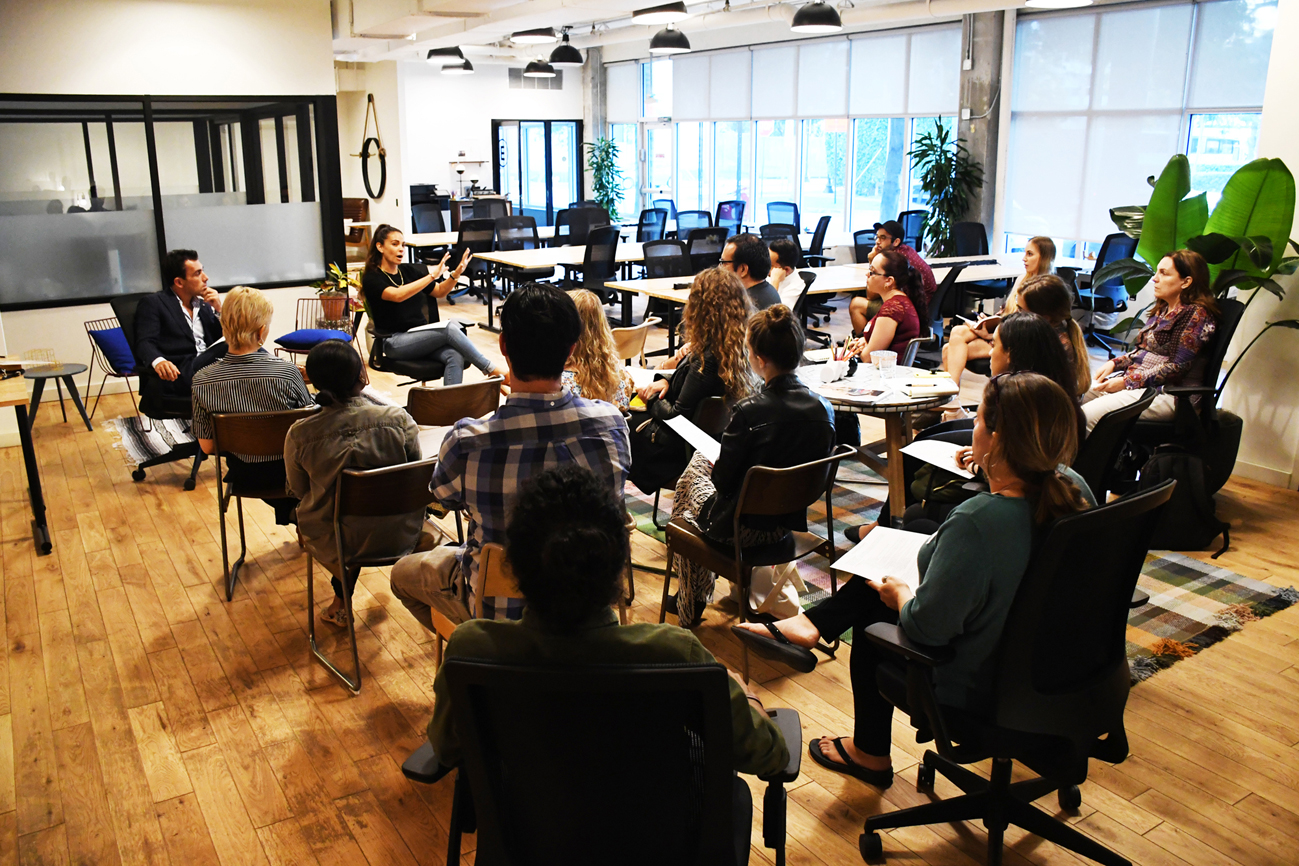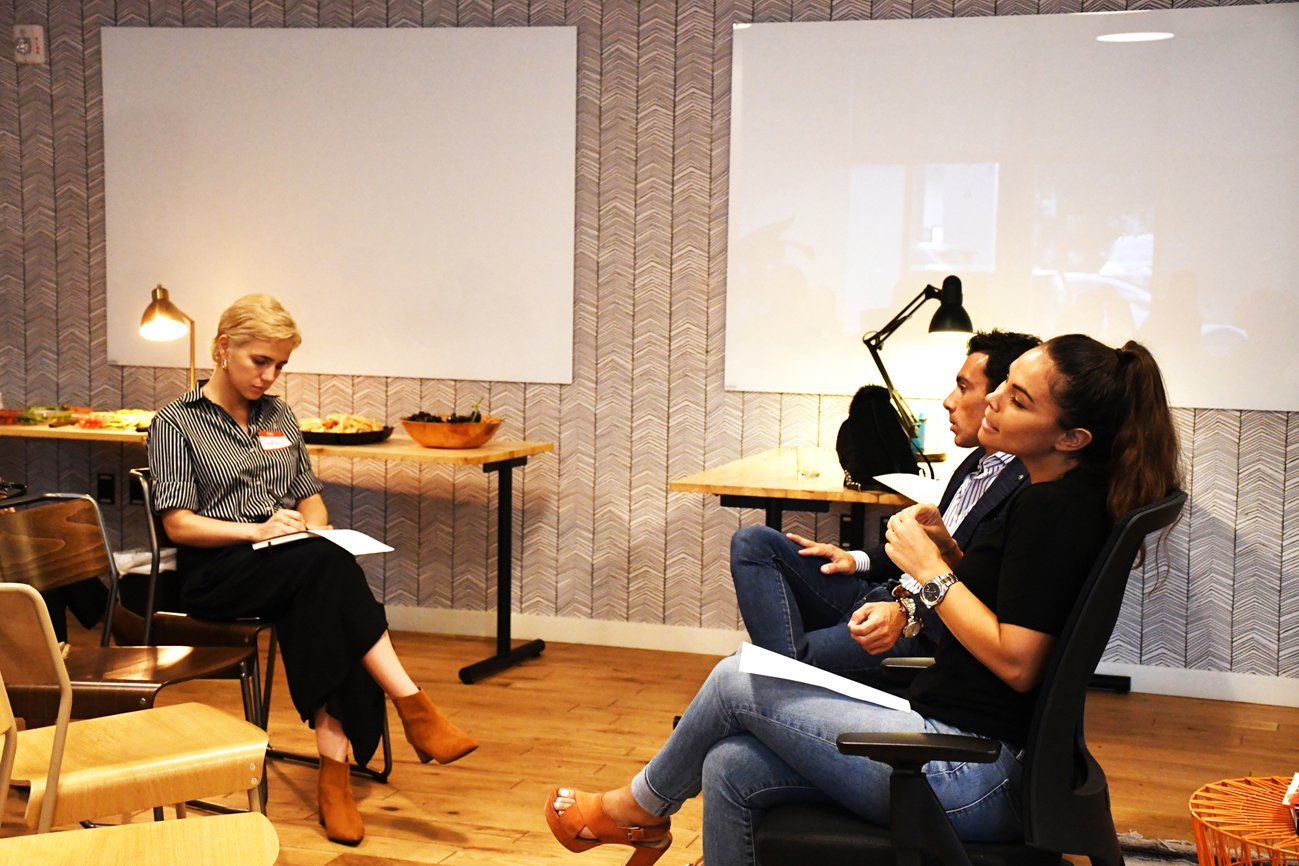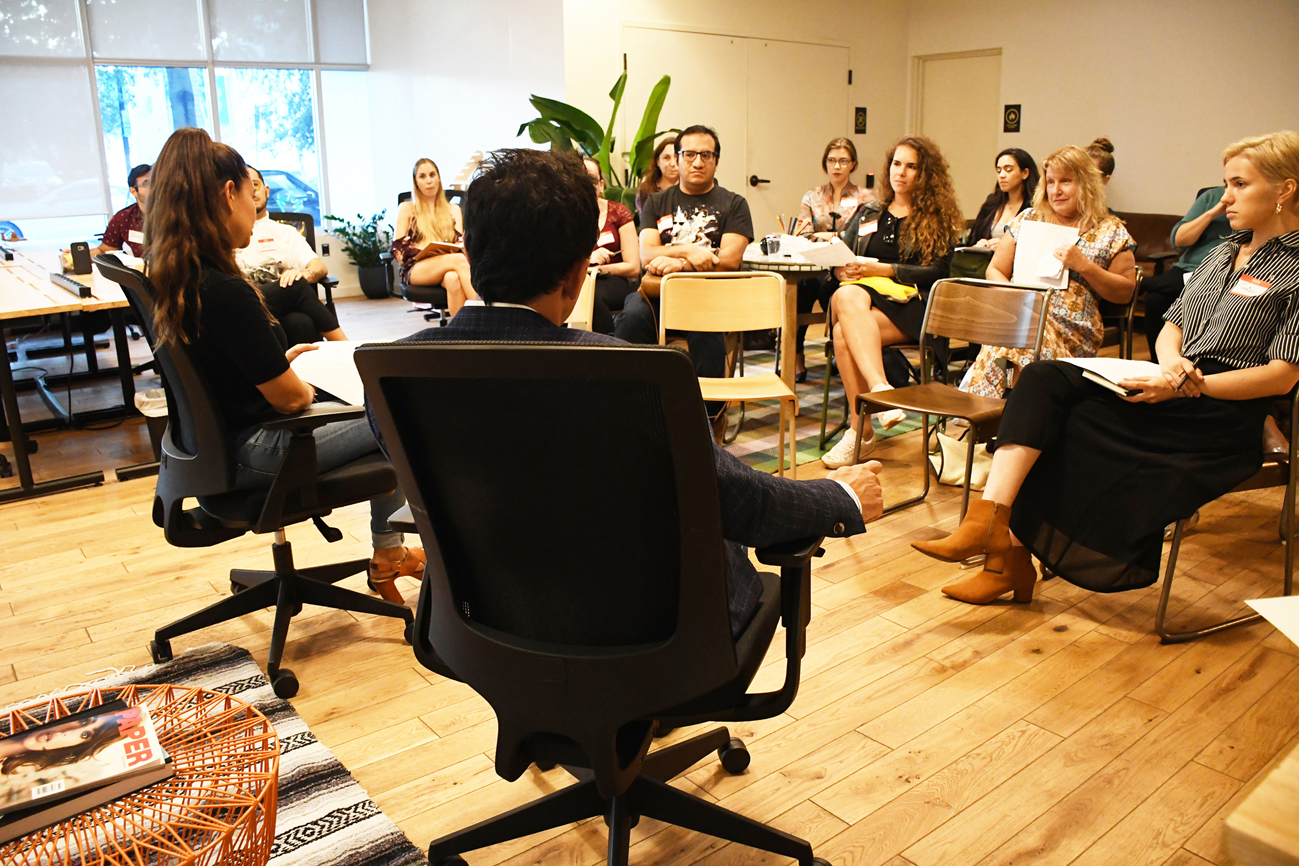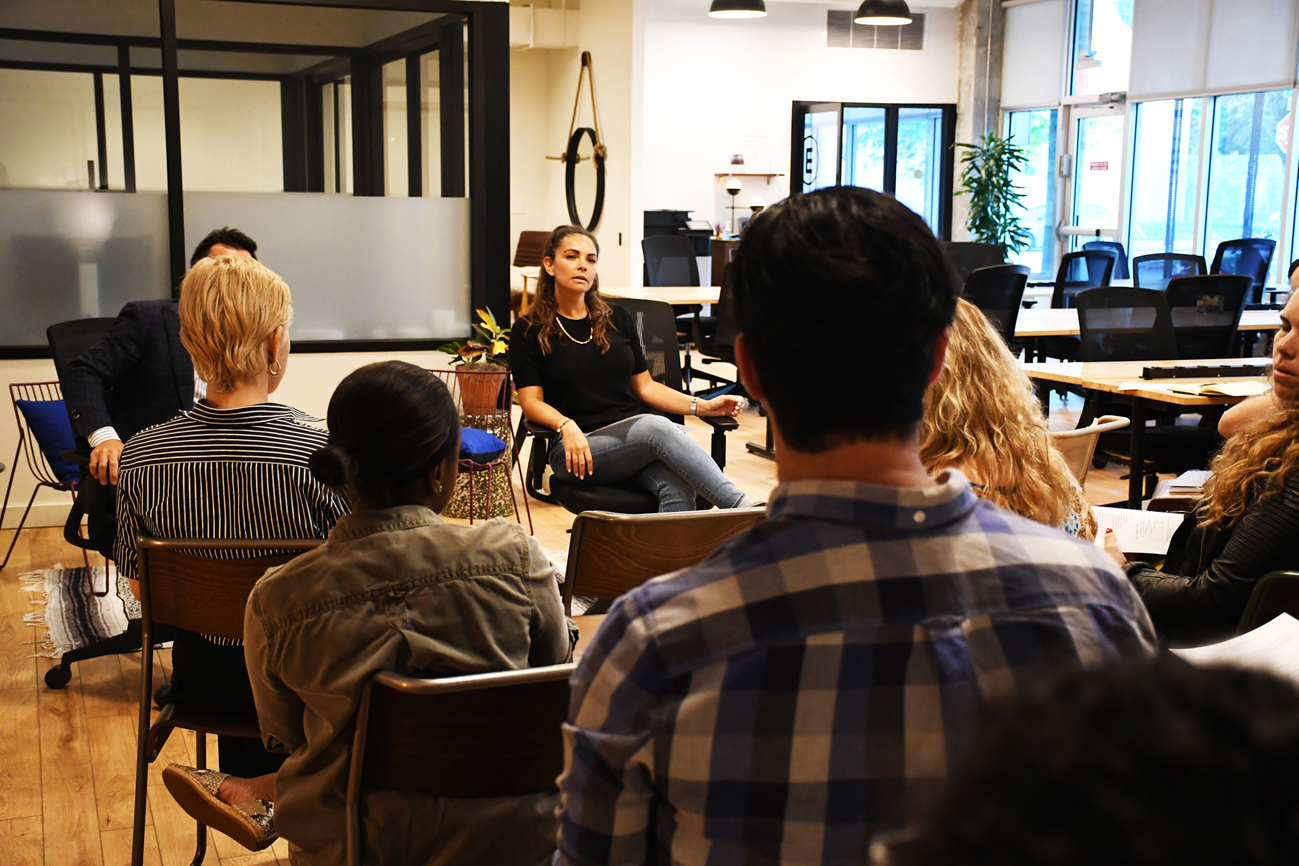Designers, business owners, and students recently joined AIGA Miami for an eye-opening talk about copyright infringement with lawyers Christopher DiSchino and Brenda Schamy. While Chris and Brenda fielded dozens of detailed questions over the course of the night—and tried their best to quell the growing panic!—it was clear that the internet age is a bit like the Wild West…but that doesn’t mean you’re always in the clear with “fair use” in the digital arena. To address some FAQs, our two favorite attorneys have graciously outlined this helpful guide, below. So sit back, breathe, make some nice calming tea, and learn how to make sure the law is on your side when it comes to social sharing.
A big thank you to Chris and Brenda for offering their expertise!
– AIGA Miami team
A Quick-and-Dirty Guide to Copyright Law
A copyright exists the moment something is created and put out into the world in a fixed form.

A registered copyright is a protection provided by the U.S. government for an “original” work that formally establishes a public record. While a copyright can exist automatically, registration of a copyright is not automatic. Whether or not a copyright has a registration certificate and when that registration certificate was obtained makes a difference in the amount of damages to be alleged once the virtual damage is done:
- Actual damages: These are profits that stem from (or any financial loss that occurs due to) the infringement, plus profits of the infringer.
- Statutory damages: In order to collect statutory damages, you must have registered the copyright either (i) prior to the date of the infringement, OR (ii) within three months from the date of publication (if the infringement occurred before the registration date). If you qualify for statutory damages, you can claim:
- Between $750 and $30,000 per work.
- If the infringement is willful, then you can collect up to $150,000 per work.

Content Producers:
If someone uses or copies your work, you can only sue the infringer if the copyright at issue is registered. In addition to being able to sue an infringer in court, registering your copyright comes with a number of advantages:
- You can establish a public record of your copyright, which disincentivizes potential infringers from using your work.
- You can establish a record with U.S. Customs and Border Protection to protect against importation of infringing copies of your work.
- If you register your copyright within three months after publication of your work or prior to an infringement, you can collect statutory damages and attorney’s fees, as stated above.

Content Users:
If you are a brand or business, you may be liable for copyright infringement if you don’t get the right permission to use another’s content. For example, in the world of Instagram, “Regramming” is when a user posts a photo from someone else’s account to their own. Unfortunately, this trend is rampant within the social networking community, exposing thousands of small businesses to liability. Make no mistake, a “Regram” on Instagram is copyright infringement. You do not gain protection from liability just by attributing credit to the content creator and you do not have free reign just because the content is available on a public platform.
This can be used against you legally if you don’t have permission from the original creator. These are the possible damages you could face if you are found guilty of copyright infringement:
- Actual damages: These are profits that stem from (or any financial loss that occurs due to) the infringement, plus profits of the infringer.
- Statutory damages: In order to be liable for statutory damages, the copyright must have been registered either (1) prior to the date of the infringement, OR (2) within three months from the date of publication (if the infringement occurred before the registration date. You could face:
- Between $750 and $30,000 per work.
- If the infringement is willful (see more below), then you can face up to $150,000 per work.

You must also consider the type of infringement in order to determine your potential liability.
- Unintentional infringement = entitlement to actual damages (past license + profits) OR statutory damages (minimum of $750 to $30,000), per work.
- Intentional removal of copyright notices or watermarks (e.g. the Instagram symbol) = $2,500 to $30,000 in damages, per work.
- Deliberate infringement = $30,000 to $150,000 in damages, per work.
Despite the fact that most of the time you may just receive a request to remove the infringing content, there are worst-case scenarios, including being sued in court. Regramming content can be a great way to showcase your business, but it is important to take the necessary steps to protect yourself by:
- Creating unique content with your own photographers; or
- Seeking written permission from the original poster (or rightful owner of the photograph), and even then, giving attribution and links to the original source.
Following the steps listed above will help to ensure that you will not get into legal trouble when using other people’s content on your Instagram account.

If you’d like to register your copyright or think there may be someone infringing on your work, please contact DiSchino & Schamy, PLLC, to find out more! Email: admin@dsmiami.com.
Photography by Isabel Castro